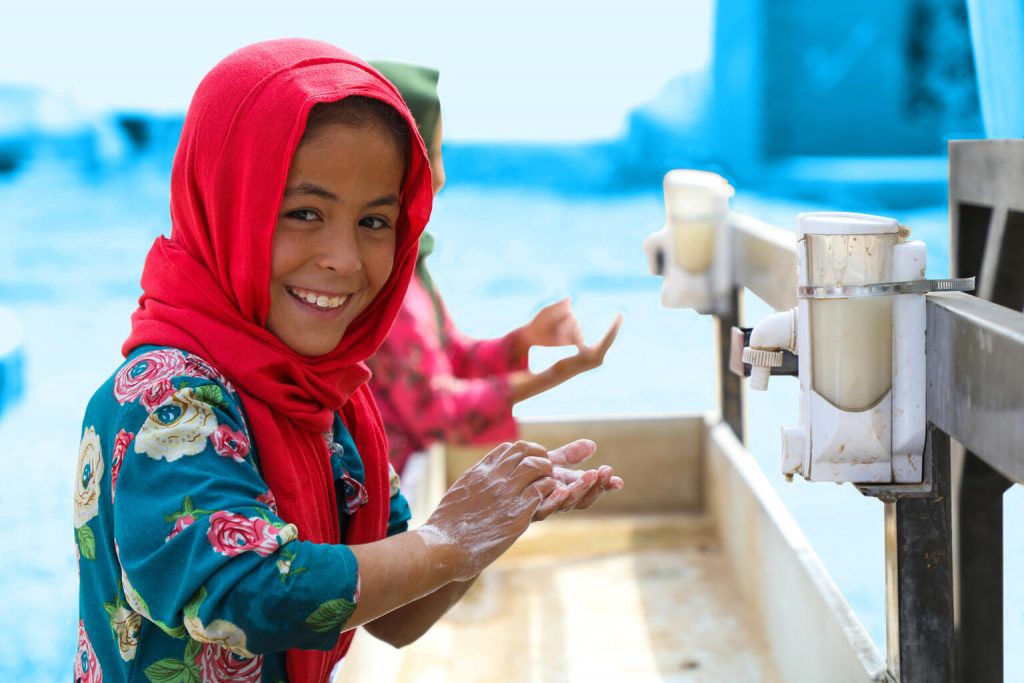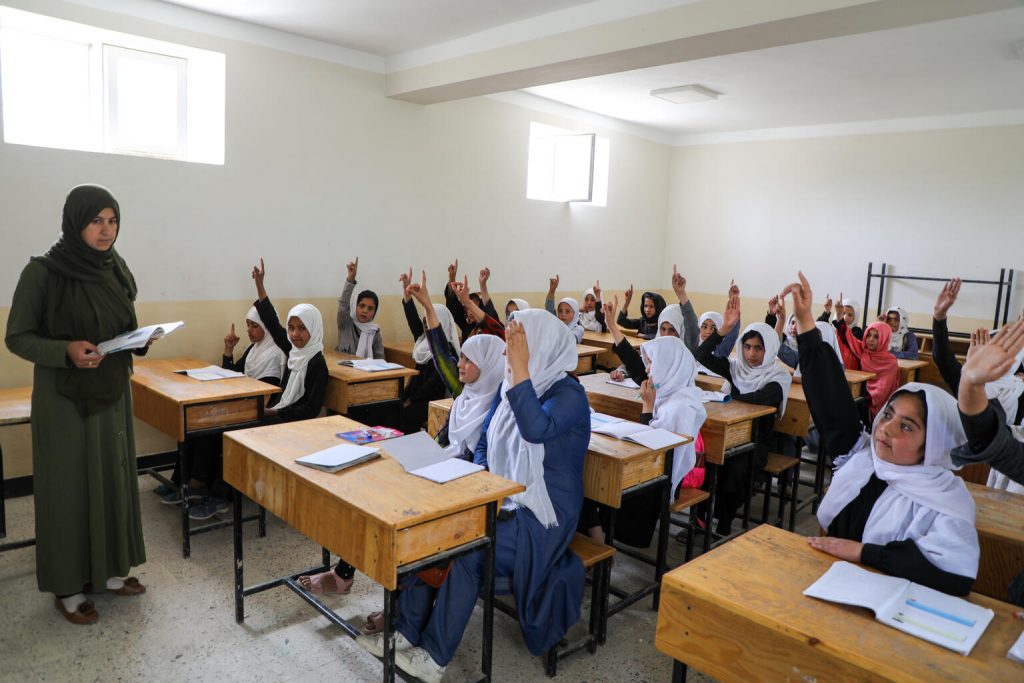Today, 24 million people across Afghanistan desperately need urgent humanitarian assistance to survive. Of those 24 million people, 13 million are children.
Afghanistan is facing the collapse of health, nutrition, WASH, education and other vital social services for children and families.
Today, over 1 million children are projected to suffer from Severe Acute Malnutrition and could die without treatment. Families who could once feed and support their children are now destitute.
The rights of women and girls hang in the balance. Young girls are now being refused the right to secondary education. An estimated 3.7 million children are out-of-school in Afghanistan – 60% of them are girls.
Afghan children need urgent help. Right now, UNICEF is scaling up its lifesaving programmes for children and women. We’re working to deliver medicine, food, shelter and clean water services to displaced families.
UNICEF is expanding these operations to areas that could not previously be reached because of insecurity. Our commitment to Afghanistan’s children is unequivocal. UNICEF’s work isn’t done, we’ll continue to fight for the rights of each and every child.
UNICEF’s Work in Afghanistan
For the past 65 years, UNICEF has been on the ground in Afghanistan working to protect children, mothers and families.
Today we continue to work to deliver life-saving services.
Heath and Nutrition
This year alone, an estimated 1 million Afghani children will suffer from Severe Acute Malnutrition. With rising insecurity, war in Europe, inflation and the COVID-19 pandemic, the situation is getting worse.
Afghanistan has one of the world’s highest rates of stunting in children aged under five. Stunting is defined as when a child’s growth and development is delayed because of poor nutrition. In addition, the rate of wasting in Afghanistan is also extremely high. Wasting, as the name suggests, is when someone becomes emaciated and “wastes” away to skin and bones.
To put it simply, children in Afghanistan are not getting enough food. Without urgent intervention, many will struggle to survive.
UNICEF is on the ground in Afghanistan working to protect children and their families. We’re working to reach every child on time and deliver emergency ready-to-use therapeutic food. High-calorie emergency food, like peanut paste, is a life-saving solution and can bring a child back from the brink of death.
At the same time, UNICEF is working to deliver long-term nutrition programmes and education through mobile health and nutrition mobile services. UNICEF will also support the training of nutrition counsellors, community health workers, midwives and other health workers who can teach families about nutrition and care for those struggling.
Water and Sanitation
Clean water, toilets and good hygiene practices are essential to the survival and development of children.
In Afghanistan an underdeveloped water supply, open defecation and a lack of information about proper hygiene practices are some of the biggest issues facing communities.
An estimated 8 of 10 Afghans drink bacteriologically contaminated water.
Diarrhoeal diseases, caused by dirty water or improper hand-washing, are the second most common cause of death for children under the age of five.
Clean water is a universal right and no child should die because they don’t have access to safe drinking water or proper sanitation.
Today, UNICEF is working to ensure every school has access to toilets, proper sanitation and handwashing facilities. We’re also working to develop the water supply in rural regions and help communities that rely on rivers, streams, wells, boreholes and traditional ponds for their water.

Equality for Girls
Women and girls in Afghanistan continue to face widespread discrimination and human rights abuses. Violence and forced marriage are just some of the abuses women and girls face every day in Afghanistan.
Female literacy rates in the country are some of the lowest in the world. Many girls are not allowed to attend school and are often forced to stay at home.
An educated female population is essential for any nation to develop and pull itself out of poverty. Progress for women means progress for all.
UNICEF knows the power of a supported and educated female population. Because of this, we are working to widen the participation of young girls in formal and informal schooling. We are providing gender separated washrooms and menstrual hygiene management in schools to encourage girls to enroll and stay in school.
In addition we are also working to ensure girls, women and mothers have equal access to health and nutrition services.

Building a Better Future for Afghanistan
A little girl from Afghanistan smiles to the camera. Her dream is to become an engineer so that she can provide water for her village. Help her continue her education by donating now.

